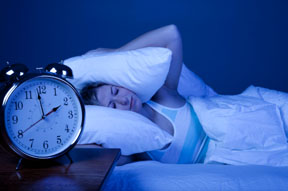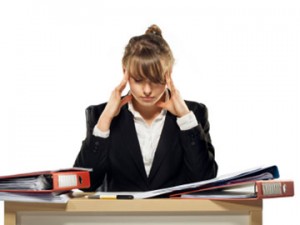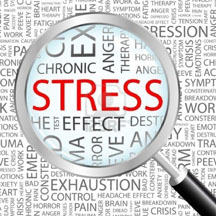 While the general public as a whole struggles with a variety of life stressors, law enforcement personnel often have more extreme stressors to combat. While local citizens might worry about their career, family, and finances on a regular basis, people who choose a career in law enforcement take on additional stressors. According to a 2014 study on police personnel and stress resilience training, these additional stressors may include psychological stressors connected with the mission, extended duty cycles, and exposure to horrific scenes of death and injury. (1)
While the general public as a whole struggles with a variety of life stressors, law enforcement personnel often have more extreme stressors to combat. While local citizens might worry about their career, family, and finances on a regular basis, people who choose a career in law enforcement take on additional stressors. According to a 2014 study on police personnel and stress resilience training, these additional stressors may include psychological stressors connected with the mission, extended duty cycles, and exposure to horrific scenes of death and injury. (1)
If you are a police officer, military personnel, or another form of law enforcement with an overabundance of stress, this article is for you. To help you battle not only criminals, but also stress- Here are a few tips for helping combat stress.
- Recognize. As with most things you must work to overcome, recognizing the problem is the first step. Take the time to assess your personal stress levels regularly. By keeping a close watch you can begin to sense trigger stressors before they build and get out of hand.
- Lead a healthy lifestyle. Though the hours of those who have careers in law enforcement can be demanding, it’s important to prioritize good health in your life. Do your best to maintain a regular sleeping schedule, eat healthy foods, and stay active.
- Take time away. Don’t be afraid to take a step away from the field whenever you need it. Small vacations away or extra time spent at home relaxing with loved ones can be just what the doctor ordered to help eliminate on-the-job stress.
- Prioritize. Law enforcement personnel have a rather important job, but never more important than your family or loved ones. Be sure to prioritize and bring things into perspective regularly to help ward off unneeded stress.
- Invest in a hobby. When you’re off the clock, choose to invest in a hobby. Weather its model cars, an instrument, or even sports by learning something new or engaging in an activity you enjoy you can naturally melt away stress and reenergize your body for another day on the job.
- Seek help. If you find yourself carrying a heavy weight of stress on your shoulders wherever you go, take the step toward seeking professional help. Confiding in a professional can help you receive the necessary help required to tackle your stress.
While everyone struggles with stress at one point in their life or another, people in law enforcement often have additional stressors. Combat unwanted stress on the job by learning to recognize stress in your life, leading a healthy lifestyle, taking time away, prioritizing, investing in a hobby, and of course- seeking help when you need it most. By doing so you can not only battle criminals but also stress.
Mark D. Parisi, Psy.D. & Associates, P.C. provides counseling, psychological testing, and psychotropic medication management in Mount Prospect and Chicago – serving surrounding Cook, Lake, DuPage, and Will Counties. They accept most insurance and offer extremely affordable sliding scale rates. Call (847) 909-9858 for a free, no-obligation telephone consultation
###
Sources:
- Police Department Personnel Stress Resilience Training: An Institutional Case Study, Potential law enforcement stressors, 2014, http://www.ncbi.nlm.nih.gov/pubmed/24808985


 It is easy for people to get wrapped up in various treatments, therapies, and medications when it comes to controlling mental illness but did you know simply engaging in hobbies you already love can help too?
It is easy for people to get wrapped up in various treatments, therapies, and medications when it comes to controlling mental illness but did you know simply engaging in hobbies you already love can help too? According to the National Sleep Foundation, 40 million Americans suffer from over 70 different sleep disorders and 60 percent of adults report having sleep problems a few nights a week or more.(1) Clearly, getting adequate sleep is a nationwide problem, and one that is leaving lasting negative effects.
According to the National Sleep Foundation, 40 million Americans suffer from over 70 different sleep disorders and 60 percent of adults report having sleep problems a few nights a week or more.(1) Clearly, getting adequate sleep is a nationwide problem, and one that is leaving lasting negative effects. Team sports have long been a popular activity for people of all ages. While some people play just for fun, there are many others who play at an extremely competitive level. No matter your reason, however, there are benefits and dangers of playing sports.
Team sports have long been a popular activity for people of all ages. While some people play just for fun, there are many others who play at an extremely competitive level. No matter your reason, however, there are benefits and dangers of playing sports. The most common mental illness in men is depression. While this is often caused by post-traumatic stress disorder after serving time in the armed forces, many men suffer from depression for genetic, psychological, and stress related reasons (1). In fact, studies showed that over 6 million men in America suffer from depression. Their reaction to depression is usually substance or alcohol abuse, anger (sometimes abusive), and even suicide (2).
The most common mental illness in men is depression. While this is often caused by post-traumatic stress disorder after serving time in the armed forces, many men suffer from depression for genetic, psychological, and stress related reasons (1). In fact, studies showed that over 6 million men in America suffer from depression. Their reaction to depression is usually substance or alcohol abuse, anger (sometimes abusive), and even suicide (2). Today, chronic stress- stress that interferes with your ability to function normally over an extended period- is becoming a public health crisis, according to the American Psychological Association (APA). (1) Caused by a variety of triggers such as money, work, the economy, job stability, personal health, and even family responsibilities, stress is wreaking havoc in the lives of most Americans these days. But what can we do to better cope?
Today, chronic stress- stress that interferes with your ability to function normally over an extended period- is becoming a public health crisis, according to the American Psychological Association (APA). (1) Caused by a variety of triggers such as money, work, the economy, job stability, personal health, and even family responsibilities, stress is wreaking havoc in the lives of most Americans these days. But what can we do to better cope? While many of us are fully aware of how weather has the ability to affect our physical health, the majority of people today are completely ignorant of the affects weather can have on our mental health. Rain or shine, hot or cold, tornado or hurricane- weather can have a dominating effect on the way we feel and translate the world around us.
While many of us are fully aware of how weather has the ability to affect our physical health, the majority of people today are completely ignorant of the affects weather can have on our mental health. Rain or shine, hot or cold, tornado or hurricane- weather can have a dominating effect on the way we feel and translate the world around us. According to the key findings of the American Psychological Association (APA), there are 2 terrible truths about stress today (1). To help you better understand these truths and in return your own personal stress, here’s more.
According to the key findings of the American Psychological Association (APA), there are 2 terrible truths about stress today (1). To help you better understand these truths and in return your own personal stress, here’s more. Most people experience stress on a daily basis. For some it is mild and easily controlled, but for others it can be serious and begin to affect their everyday lives. There are many ways to manage stress, but exercise is one that can assist in stress management as well as provide many other health and mental benefits.
Most people experience stress on a daily basis. For some it is mild and easily controlled, but for others it can be serious and begin to affect their everyday lives. There are many ways to manage stress, but exercise is one that can assist in stress management as well as provide many other health and mental benefits. 2. Encourage Stability. Having a consistent routine as well as a goal to be attained can shift the focus of a person’s mind. Even if the stress factors in his life have not been removed, the stability offered by a proper exercise regimen can allow him to concentrate on something other than those stress factors. If you are in need of some consistency in your everyday schedule, make exercise part of your daily routine, not just something that you do if you have time. The best way to accomplish this is to join a specific class that meets at a specified time or to work out with a friend; if someone is relying on you to be there, you are less likely to make excuses.
2. Encourage Stability. Having a consistent routine as well as a goal to be attained can shift the focus of a person’s mind. Even if the stress factors in his life have not been removed, the stability offered by a proper exercise regimen can allow him to concentrate on something other than those stress factors. If you are in need of some consistency in your everyday schedule, make exercise part of your daily routine, not just something that you do if you have time. The best way to accomplish this is to join a specific class that meets at a specified time or to work out with a friend; if someone is relying on you to be there, you are less likely to make excuses. The majority of people have experienced at least one break up. In fact, a study in 2011 showed that 37% of people ages 18 to 35 had been through at least one break up in the past 20 months (1). Regardless of the circumstances or the length and seriousness of the relationship, breaking up is hard to do. The mental and social side effects can sometimes be devastating. What can you do to make it easier on yourself?
The majority of people have experienced at least one break up. In fact, a study in 2011 showed that 37% of people ages 18 to 35 had been through at least one break up in the past 20 months (1). Regardless of the circumstances or the length and seriousness of the relationship, breaking up is hard to do. The mental and social side effects can sometimes be devastating. What can you do to make it easier on yourself?